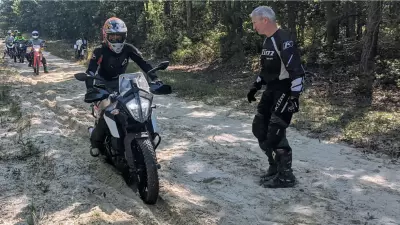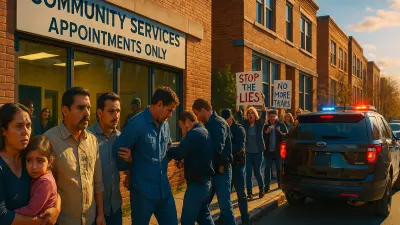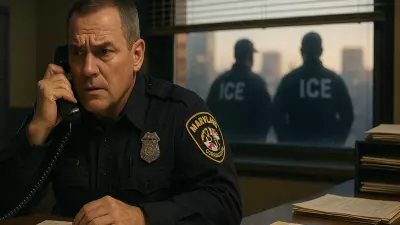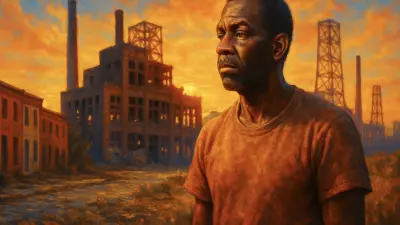My ex-husband used to tell me my head was in the clouds due to my occasional tendency to trip up stairs or walk into things.

 So when I decided to learn to ride a motorcycle, he expected me to fail.
So when I decided to learn to ride a motorcycle, he expected me to fail.
But I didn’t fail. In fact, I was among the best novices in the training course I took to learn the basics of riding. And in addition to learning how to handle a motorcycle, I also came away with a valuable lesson that helped transform me from “klutzy” to “coordinated.”
While also mastering the rules of riding and how to respond to unforeseen events, I learned the importance of paying attention.
Every time I get on my bike, the road, every vehicle, and obstacle on it, has my full, undivided attention. It’s my training that’s made all the difference in the 22 years I’ve been riding without a major incident.
Unfortunately, that’s not the case with every rider.
In April, the National Highway Traffic Safety Administration put out a grim report showing traffic fatalities were up sharply across the board (cars, vans, trucks, and motorcycles) from 2020 to 2021. Distraction, speeding, and alcohol were among the reasons for so many of the deaths.
As someone who’s now been riding for a while, and also works in the motorcycle safety industry, I’m so grateful to have learned the importance of “paying attention” at the outset of my life on two wheels.
And I’m still finding ways to get better, even though I’ve logged more miles on paved roads and dirt trails than many riders.
I’ve gone to several riding schools over the years and have continued working on my technique to become a better, safer rider, whether I’m on the road or taking on a tricky, narrow, dirt trail through the woods.
All the training I’ve done, and continue to do, has helped me learn how to make smart riding decisions. Because training to be a better rider doesn’t just help improve your motor skills. You’re also training your mind to remain calm yet be hyper-aware, so when something goes wrong, you’re prepared.
Instead of panicking and reacting poorly, you know how to anticipate dangers, predict what may happen (on the street or in the trails), so you can respond appropriately, whether it’s adjusting your position, your speed, or your movements.
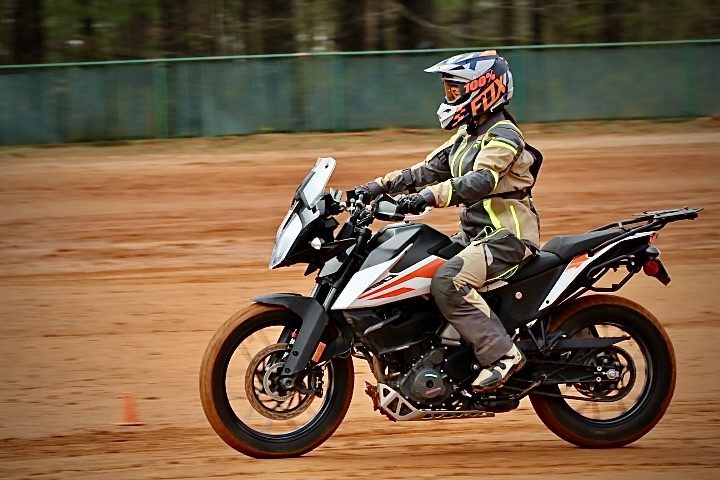
Not only have I practiced different quick-response techniques on my bike with the Motorcycle Safety Foundation (full disclosure: I work at MSF), I’ve also learned to mentally prepare for the potential hazards out there.
It might sound like a lot to think about when riding, but oddly, it is not. It’s very Zen in its own way. Allowing your mind to focus on one thing — riding a motorcycle — puts you in the moment.
Interestingly, meditation has the same effect for many people. You meditate to focus your mind, be calm, and become aware of your senses. (I also happen to practice Tai Ji Quan, a Chinese internal martial art.) Motorcycling does much of the same for me.
That kind of focus on the road has definitely come in handy, like the time on the highway when a driver changing lanes pulled out in front of me, and I was forced to swerve around him into the gravel shoulder at a fairly high speed.
As I passed, I looked into his car and saw a look of horror on his face as he realized how close he had come to hitting me. I just kept going, shaking my head, and hoping he had learned to look and double-check his blind spots before changing lanes.
Had I not trained so diligently to learn how to perform in just that type of situation, the outcome may have been far worse for me.
Still, despite all my years of riding and continuous training, people often ask me: “Aren’t you scared when riding? Doesn’t the traffic make you nervous?”
I always give a version of the same answer: “No. Because when I ride, I feel in complete control.”
Andria Yu is director of media relations for the Motorcycle Safety Foundation and teaches people how to ride as an MSF-certified RiderCoach in Maryland. Before her time with MSF, Andria was a front-page editor for USA TODAY. If you’re interested in learning to ride or want to continue with more advanced training, go to www.msf-usa.org to find a site near you.

